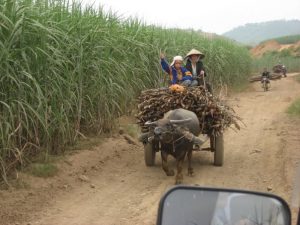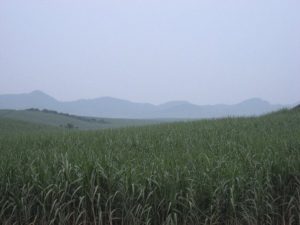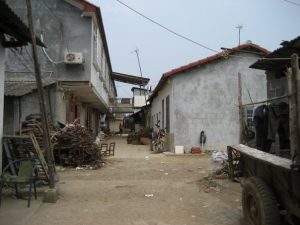About me and my language community
Name: Jessie Chen (with mentor Meena Wainwright)
Contact: jessieqc![]()
![]()
![]()
Aloha. My name is Jessie Chen and I was born in 1989 in Los Angeles County, California, a place with a large immigrant Chinese population. Despite being surrounded by first and second generation Chinese, I never felt quite like I fit in as a child. It took me until my freshman year in high school to really understand that the reason was because I didn’t speak the same “Chinese” as the other kids in school. I always knew I spoke Ngai, but I only then realized that no one I had ever met outside of my family spoke it!
There were many kids like me, Chinese-Americans born to parents who immigrated from China in the 1980s. By comparing and contrasting their cuisine, language, and backgrounds, I was able to discern the unique parts of my Ngai heritage. Ngai people are humble, and many were or are still farmers to this day. My parents, though identifying as Chinese, were born and raised in rural Vietnam. They farmed a variety of staple and cash crops. My mother is skilled in growing rice and sugarcane, and even raising silkworms. I take pride in her skills, which grow rarer and rarer and Chinese people move from rural villages to cities. My language, too, grows rarer with every generation as fewer people farm, and as Mandarin becomes the standard language of education and commerce.


I was lucky enough to meet my extended family for the first time when I traveled to Guangxi province in 2009. I learned that much of my family still lives in a remote village about a half hour away by a bumpy, dirt road drive from the city of Laibin. During that 30-day trip I learned that Ngai culture is very much alive, but that it exists as small, isolated pockets of Ngai people. The village is wide, but sparsely populated. It is surrounded by mountains that look over hundreds, of not thousands of acres of sugarcane. I estimate that about 400-500 people live there, but only half of them speak Ngai. The other half speaks other, non-Mandarin languages.

That trip taught me that my own command of Ngai-va, or the Ngai language, is quite poor. Having only ever communicated with my immediate family, I have very limited vocabulary. Much of the culture is already lost on my generation, since I am not a farmer like my parents. I, for example, would not know how to communicate that the water buffalo need to be take out to pasture. Ngai-va is critical to passing down knowledge and tradition to the next generation.
I am beginning my study of Ngai by expanding my basic vocabulary. I cannot preserve what I do not know. I am on a quest to learn as much as possible about my language and heritage. I want to preserve it and share it, so that it may persist.

